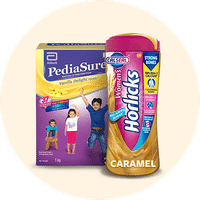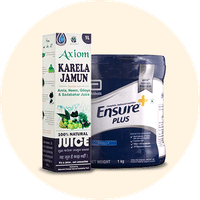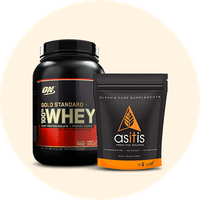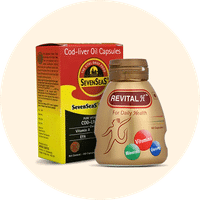Bonabond Soft Gelatin Capsule
Rs.275for 1 strip(s) (10 soft gelatin capsules each)
food interaction for Bonabond
alcohol interaction for Bonabond
pregnancy interaction for Bonabond
lactation interaction for Bonabond
food
alcohol
pregnancy
lactation
Bonabond Soft Gelatin Capsule may be taken with or without food.
None
None
CAUTION
It is not known whether it is safe to consume alcohol with Bonabond Soft Gelatin Capsule. Please consult your doctor.
CONSULT YOUR DOCTOR
Information regarding the use of Bonabond Soft Gelatin Capsule during pregnancy is not available. Please consult your doctor.
CONSULT YOUR DOCTOR
Information regarding the use of Bonabond Soft Gelatin Capsule during breastfeeding is not available. Please consult your doctor.
CONSULT YOUR DOCTOR
SALT INFORMATION FOR Bonabond
Calcitriol(0.25mcg)
Uses
Calcitriol is used in the treatment of post menopausal osteoporosis and calcium deficiency.
How it works
Calcitriol is the active form of Vitamin D. It raises Vitamin D levels in your blood. This in turn raises calcium levels in your blood by helping you absorb more calcium from your intestine.
Common side effects
Headache, Nausea, Abdominal pain, Vomiting, Weight loss, Increased calcium level in blood, Rash, Urinary tract infection, Itching, Erythema (skin redness), Decreased appetite, Increased creatinine level in blood, Dry skin, Worsening of psoriasis, Hypersensitivity, Feeling thirsty, Dehydration, Calcinosis cutis, Fever, Skin swelling, Contact dermatitis
Calcium citrate(500mg)
Uses
Calcium citrate is used in the treatment of osteoporosis.
How it works
Calcium citrate raises blood calcium levels and replenishes the body with required calcium.
Common side effects
Limited data available
Vitamin K2-7(45mcg)
Uses
Common side effects
Methylcobalamin(1500mcg)
Uses
Methylcobalamin is used in vitamin B12 deficiency.
How it works
Methylcobalamin is a form of vitamin B12 that restores its level in the body thereby helping in treating certain anemias and nerve problems.
Common side effects
Decreased appetite, Diarrhea, Nausea, Rash
Zinc Oxide(7.5mg)
Uses
Zinc Oxide is used in the treatment of nutritional deficiencies.
How it works
Zinc Oxide provides essential nutrients
Common side effects
No common side effects seen
L-Methyl Folate(800mcg)
Uses
L-Methyl Folate is used in the treatment of nutritional deficiencies.
How it works
L-Methyl Folate provides essential nutrients.
Common side effects
Gastrointestinal discomfort, Bitter taste, Confusion, Taste change, Excitement, Hyperactivity, Impaired concentration, Impaired judgment, Irritation, Loss of appetite, Sleep disorder, Flatulence, Nausea
SUBSTITUTES FOR Bonabond
23 Substitutes
23 Substitutes
Sorted By
 Rs. 215.60save 22% more per Soft Gelatin Capsule
Rs. 215.60save 22% more per Soft Gelatin Capsule- C-Roks Plus Soft Gelatin Capsule(10 soft gelatin capsules in strip)Lenus Lifecare Pvt.Ltd.Rs. 24.70/Soft Gelatin Capsule
 Rs. 262.50save 10% more per Soft Gelatin Capsule
Rs. 262.50save 10% more per Soft Gelatin Capsule  Rs. 229.60save 18% more per Soft Gelatin Capsule
Rs. 229.60save 18% more per Soft Gelatin Capsule Rs. 285.90save 4% more per Soft Gelatin Capsule
Rs. 285.90save 4% more per Soft Gelatin Capsule Rs. 178.13save 36% more per Soft Gelatin Capsule
Rs. 178.13save 36% more per Soft Gelatin Capsule
Expert advice FOR Bonabond
- Do not take any other forms of Vitamin D unless your doctor suggests.
- Take calcium supplements along with Vitamin D3 as suggested by your doctor.
- Drink plenty of fluids (such as water) as it is important not to become dehydrated.
- Avoid using antacids without your doctor's advice. Some antacids can make it harder for your body to absorb calcitriol.
- Consult your doctor if you notice a metallic taste in mouth, muscle or joint pain, headache or drowziness.
Frequently asked questions FOR Bonabond
Calcitriol
Q. What is Calcitriol? What is it used for?
Calcitriol is the active form of Vitamin D. It increases the levels of Vitamin D in your blood which helps to increase calcium levels in the blood by increasing the absorption rate of calcium from your intestine. Thus, it is used in the treatment of calcium deficiency and postmenopausal osteoporosis.
Q. Is Calcitriol effective?
Calcitriol is effective if used in the dose and duration advised by your doctor. Do not stop taking it even if you see improvement in your condition. If you stop using Calcitriol too early, the symptoms may return or worsen.
Q. How should Calcitriol be taken?
Calcitriol should be taken in the dose and duration advised by your doctor. It can be taken with or without food. However, it would be best to take it at the same time each day to avoid the chances of missing a dose.
Calcium citrate
Vitamin K2-7
Methylcobalamin
Q. What is Methylcobalamin?
Methylcobalamin contains vitamin B12. Vitamin B12 is an essential nutrient which is required by the body to make red blood cells and maintain a healthy nervous system. It is also important for releasing energy from food and using vitamin B11 (folic acid).
Q. Why can’t I get sufficient vitamin B12 from my diet?
You can get vitamin B12 from sources like meat, fish, eggs and dairy products. While people who are vegetarian or vegan may not get Vitamin B12 as it is not found naturally in foods such as fruits, vegetables and grains. Therefore, deficiency of Vitamin B12 is usually noticed in vegetarians or vegans.
Q. What happens if I have vitamin B12 deficiency?
Deficiency of vitamin B12 may cause tiredness, weakness, constipation, loss of appetite, weight loss and megaloblastic anemia (a condition when red blood cells become larger in size than normal). It may also lead to nerve problems such as numbness and tingling in the hands and feet. Other symptoms of vitamin B12 deficiency may include problems with balance, depression, confusion, dementia, poor memory and soreness of the mouth or tongue.
Zinc Oxide
L-Methyl Folate
Q. What is L-Methyl Folate? What is it used for?
L-Methyl Folate contains folate which is also known as folic acid (a form of Vitamin B). This medicine is used to treat or prevent deficiency of folate in the body. Folate plays an essential role in the production of red blood cells, and its deficiency can lead to anemia.
Q. Who should not take L-Methyl Folate?
You should not use this medication if you have ever had an allergic reaction to L-Methyl Folate or any of its ingredients. Before you take this medication, tell your doctor if you have a vitamin B12 deficiency, pernicious anemia or a history of bipolar disorder (manic depression). Also, inform your doctor if you are pregnant or breastfeeding. Let your doctor know about all the other medicines you are taking because they may affect, or be affected by, this medicine.
Q. Is L-Methyl Folate effective?
L-Methyl Folate is effective if used in the dose and duration advised by your doctor. Do not stop taking it even if you see improvement in your condition. If you stop using L-Methyl Folate too early, the symptoms may return or worsen.



















